
Editorial
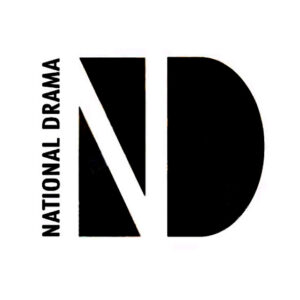
Volume 15 Editorial
Welcome to the fifteenth issue of Drama Research!
The articles in this issue describe three research projects, each located in a different genre of theatre: youth theatre, professional theatre, and site-specific community drama.

Volume 15 Editorial
Welcome to the fifteenth issue of Drama Research!
The articles in this issue describe three research projects, each located in a different genre of theatre: youth theatre, professional theatre, and site-specific community drama.
Articles
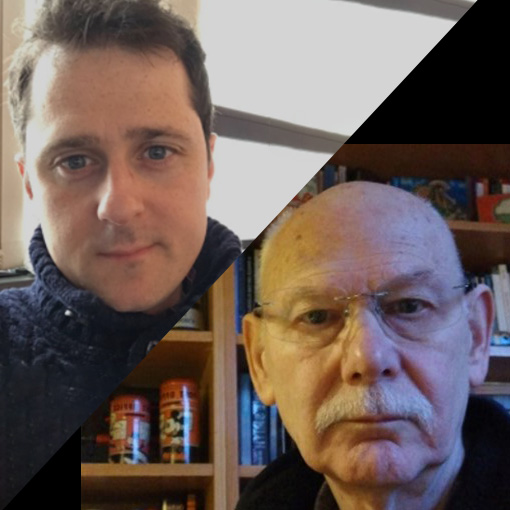
Bennachie and me: a site-specific, promenade, interactive community drama project, devised and performed in the North-East of Scotland
This is the first qualitative research study undertaken which discusses the drama aspect of a community led research project based on the history of an informal nineteenth-century colony Bennachie, in the north-east of Scotland.

Għanqbut f’Moħħha: a practice-as-research project on the theme of fear
The sense of fear has always fascinated mankind since its dawn. Faced by the incomprehensibility and the poignancy of this feeling, humanity has attempted to capture this phenomenon to make some sense of it.

Steampunk Sparks: Antigone’s Rebel Heartbeat Revived by 11-year-olds
This article describes and reflects upon a theatre practitioner/educator’s process in collaborating with a group of 11-year-olds to develop a production of Sophocles’ Antigone for the Youth Theatre Festival, Trikki Trakki, organised by Teatru Malta in March 2022.

Bennachie and me: a site-specific, promenade, interactive community drama project, devised and performed in the North-East of Scotland
This is the first qualitative research study undertaken which discusses the drama aspect of a community led research project based on the history of an informal nineteenth-century colony Bennachie, in the north-east of Scotland.

Għanqbut f’Moħħha: a practice-as-research project on the theme of fear
The sense of fear has always fascinated mankind since its dawn. Faced by the incomprehensibility and the poignancy of this feeling, humanity has attempted to capture this phenomenon to make some sense of it.

Steampunk Sparks: Antigone’s Rebel Heartbeat Revived by 11-year-olds
This article describes and reflects upon a theatre practitioner/educator’s process in collaborating with a group of 11-year-olds to develop a production of Sophocles’ Antigone for the Youth Theatre Festival, Trikki Trakki, organised by Teatru Malta in March 2022.
Book Reviews
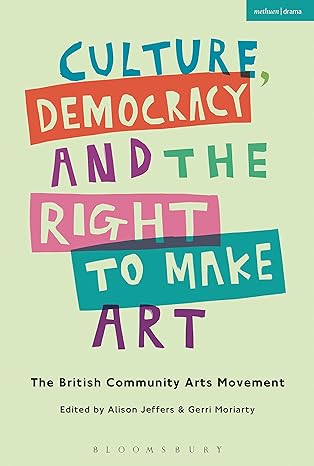
Culture, Democracy and the Right to Make Art
This excellent book fills a gap that has long existed in academic study of British grass roots arts: a conspectus that records the history of the community arts movement in the UK, locates it in the communities and the times when it was made, and explores its significance as a democratising force in British culture.
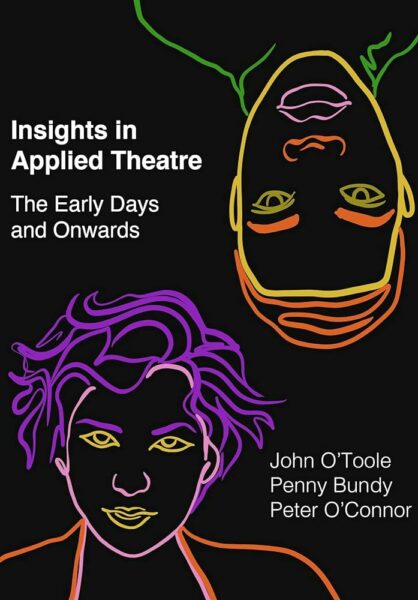
Insights in Applied Theatre: the early days and onwards
The world’s first journal of applied theatre first published these articles. How do we know? John O’Toole its editor tells us. It was probably the first because no one else was using the term ‘applied theatre’ as the millennium turned, but according to O’Toole, it soon caught on – one of those concepts whose time had come.
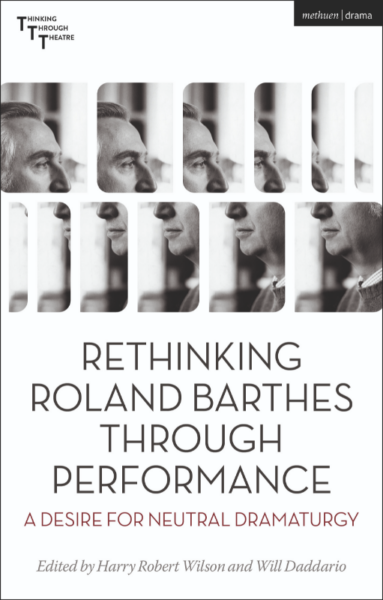
Rethinking Roland Barthes through performance
Barthes belonged to a hugely influential group of intellectuals who took the post-war work of Jacques Lacan and ran with it into the late twentieth century and beyond; these included Deleuze, Kristeva, Foucault, Cixous, Althusser, and Irigaray. Like Barthes they all experienced the cultural shift from structuralism to poststructuralism that Lacan had identified in Freud’s work on the unconscious – and they each tried to get their heads around its implications in their different ways.
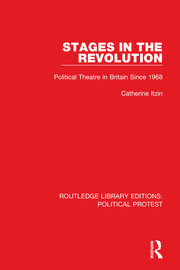
Stages in the Revolution
Stages in the Revolution was first published in 1982 and remains one of the most important studies of the growth of what it describes in a subtitle as ‘political theatre in in Britain since 1968’. Together with 1980’s Dreams and Deconstructions (edited by Sandy Craig) it paints an intimate portrait of important developments in British theatre that held out the promise of escapes from what many of its participants regarded as a sclerotic established theatre that chose to ignore significant changes in the social and political status quo.
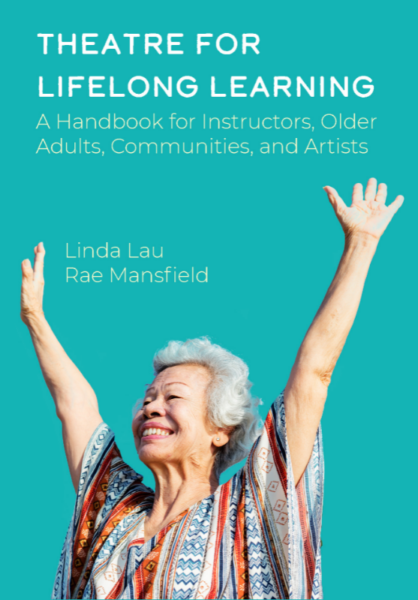
Theatre for Lifelong Learning: A Handbook for Instructors, Older Adults, Communities, and Artists
The use of drama in lifelong learning is a well-evidenced endeavour, giving the adult learner the opportunity to involve themselves in a liberating, dialogic community.
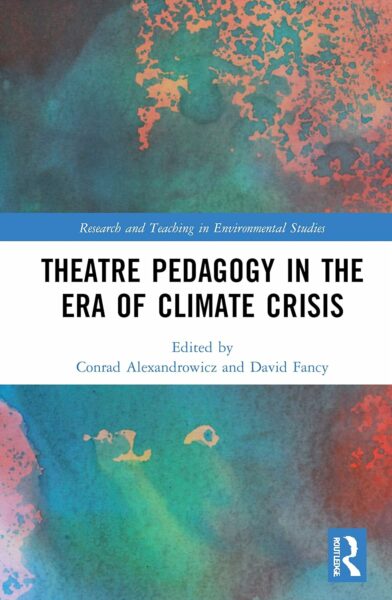
Theatre Pedagogy in the Era of Climate Crisis
Theatre Pedagogy in the Era of Climate Crisis is an important and challenging collection of writing from educators, practitioners and activists. It both recognises the enormity of the challenges that we face at this moment in our collective history- yet gives this reader, as practitioner, educator and activist- hope, by giving insight, invitations and provocations to act.

Culture, Democracy and the Right to Make Art
This excellent book fills a gap that has long existed in academic study of British grass roots arts: a conspectus that records the history of the community arts movement in the UK, locates it in the communities and the times when it was made, and explores its significance as a democratising force in British culture.

Insights in Applied Theatre: the early days and onwards
The world’s first journal of applied theatre first published these articles. How do we know? John O’Toole its editor tells us. It was probably the first because no one else was using the term ‘applied theatre’ as the millennium turned, but according to O’Toole, it soon caught on – one of those concepts whose time had come.

Rethinking Roland Barthes through performance
Barthes belonged to a hugely influential group of intellectuals who took the post-war work of Jacques Lacan and ran with it into the late twentieth century and beyond; these included Deleuze, Kristeva, Foucault, Cixous, Althusser, and Irigaray. Like Barthes they all experienced the cultural shift from structuralism to poststructuralism that Lacan had identified in Freud’s work on the unconscious – and they each tried to get their heads around its implications in their different ways.

Stages in the Revolution
Stages in the Revolution was first published in 1982 and remains one of the most important studies of the growth of what it describes in a subtitle as ‘political theatre in in Britain since 1968’. Together with 1980’s Dreams and Deconstructions (edited by Sandy Craig) it paints an intimate portrait of important developments in British theatre that held out the promise of escapes from what many of its participants regarded as a sclerotic established theatre that chose to ignore significant changes in the social and political status quo.

Theatre for Lifelong Learning: A Handbook for Instructors, Older Adults, Communities, and Artists
The use of drama in lifelong learning is a well-evidenced endeavour, giving the adult learner the opportunity to involve themselves in a liberating, dialogic community.

Theatre Pedagogy in the Era of Climate Crisis
Theatre Pedagogy in the Era of Climate Crisis is an important and challenging collection of writing from educators, practitioners and activists. It both recognises the enormity of the challenges that we face at this moment in our collective history- yet gives this reader, as practitioner, educator and activist- hope, by giving insight, invitations and provocations to act.
Editorial Board
Notes on Authors

Volume 15 Notes on Authors
Notes on Authors Dr. William D. Barlow is a Senior Lecturer in the School of Education at the University of Aberdeen. His research centres on educational and life transitions. Will has published widely on using drama as an approach to support and make sense of transitions with groups ranging from young people to senior citizens.

Volume 15 Notes on Authors
Notes on Authors Dr. William D. Barlow is a Senior Lecturer in the School of Education at the University of Aberdeen. His research centres on educational and life transitions. Will has published widely on using drama as an approach to support and make sense of transitions with groups ranging from young people to senior citizens.
Table of Contents

